Snack Time | November 2024
Highlights from the Eudemonia Longevity Summit + brilliant advice on sleep, immunity, neuroplasticity and motivation from the experts
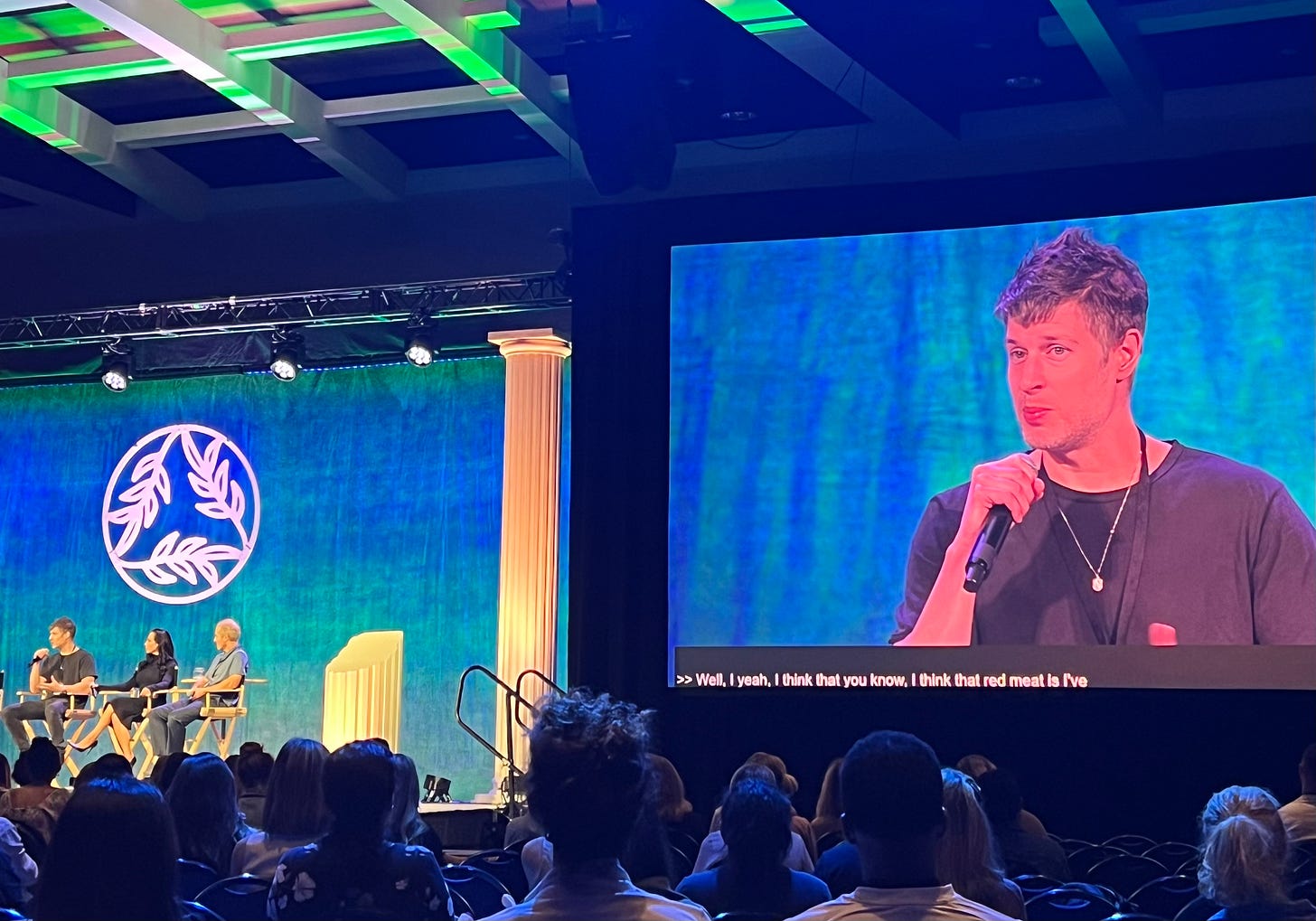
It’s Election Night. No matter who wins, a critical spotlight has been placed on health care. I’ve just returned from the Eudemonia Longevity Summit in West Palm Beach where I was this past weekend. It explains my absence on this platform as I was deep in sessions with some of the country’s leading doctors, neuroscientists, fitness experts, podcasters, and founders.
If you’ve found your way here, you likely share my passion for healthy living. This Substack is all about health optimization — where I share my learnings from experts, synthesize complex research and recommend products or services for my subscribers including performance-driven executives, wellness media, and health conscious humans who want to look and feel their best.
What did I learn at Eudemonia?
So much that I’ve dedicated this month’s Snack Time round up to include some of the most impactful take-aways from sessions with Andrew Huberman, Zach Bush and Gabrielle Lyon [scroll ⬇️]. But first a high-level observation…
We are witnessing a massive paradigm shift.
In every doctor-led talk, the call to action was clear: become an active participant in your own health. This is worlds away from the traditional medical model, which often expects passive compliance. It was inspiring to see thousands of people show up to listen, learn, ask questions and connect.
This new approach invites each of us to be not only informed patients but empowered citizens. To change the trajectory of chronic disease in this country, we need both reform and optimism which were the hot topics at a dinner hosted by Dr. Sara Gottfried and longevity brand Wonderfeel on the second night of the summit. Guests included health warriors like Calley Means, Jason Karp, Jillian Michaels, and Max Lugavere — some of the prominent voices who recently testified before the Senate.
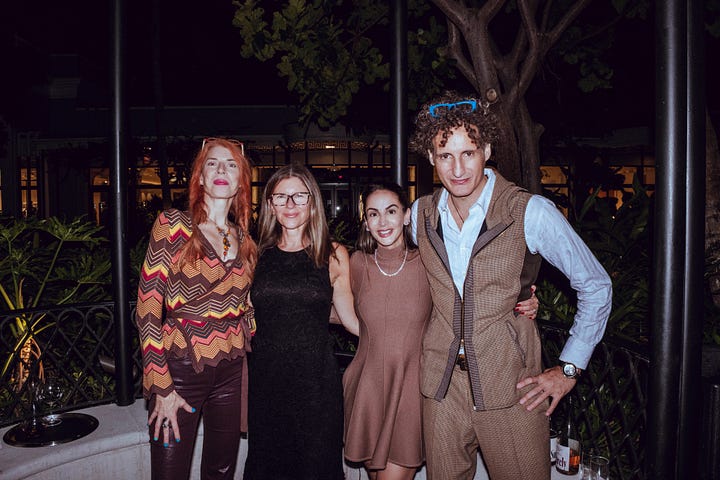

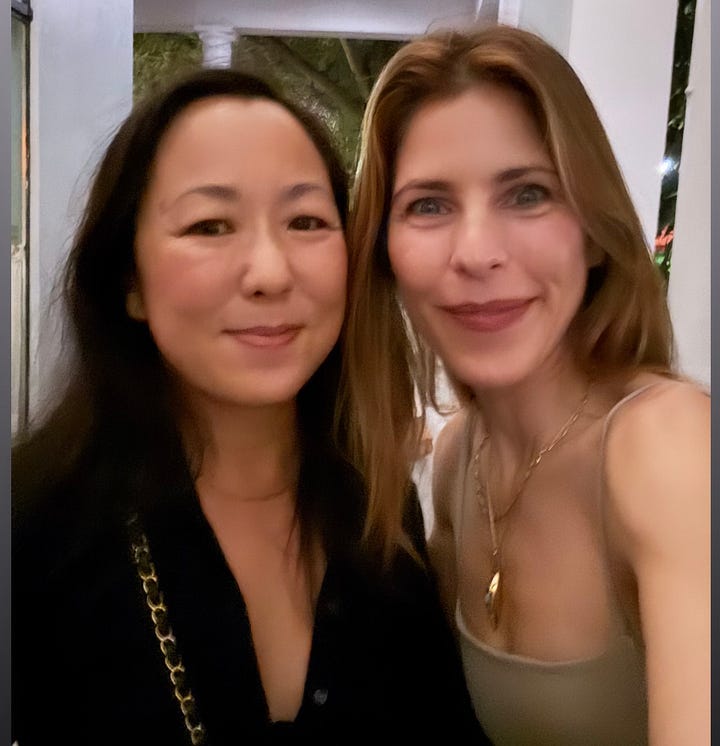
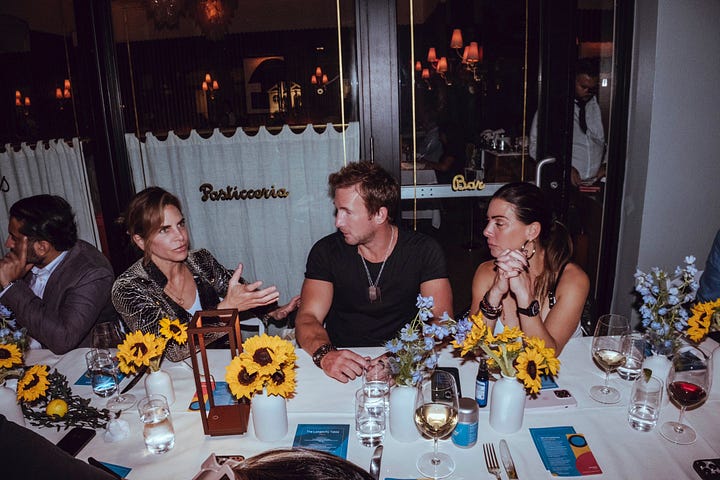
At the other end of the spectrum, I had a heartfelt conversation with Rachel Goldstein and musician-comedian Reggie Watts about the healing power of music and why the most challenging moments of sadness or loss seem to produce the best art.
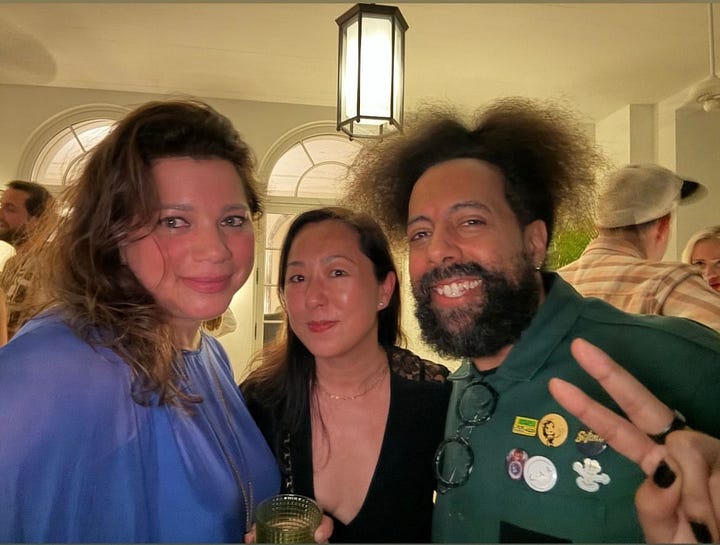
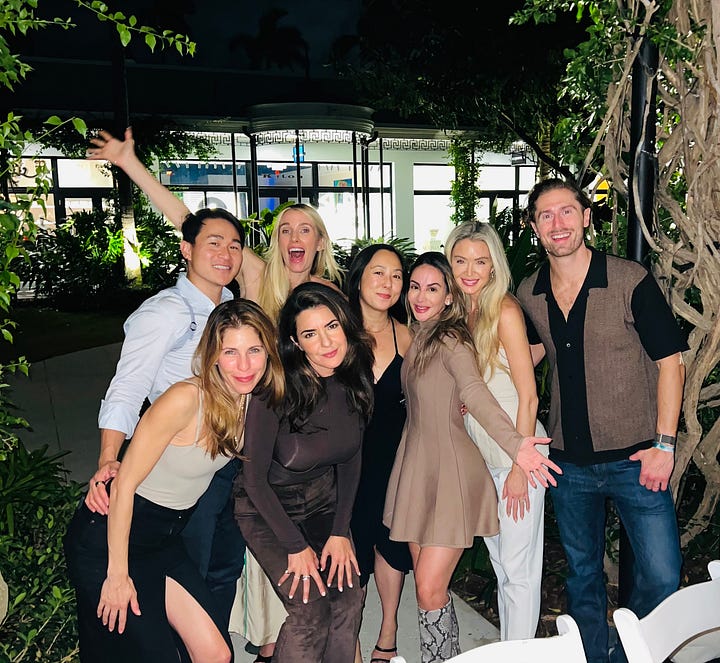
Health optimization means so many things from disease prevention to emotional regulation to fertility and even love.
Thank you for being here to explore it all.
xCelia
Welcome to Snack Time, my monthly roundup of fascinating health and wellness news. Whether it’s a headline, podcast, product discovery, or helpful resource, this post offers quick, digestible bites to nourish and educate those short on time but eager to stay informed.
Highlights from Eudemonia
I attended three days of sessions with some of the brightest minds in health and walked the expo floor for hours to sample best-in-class wellness products and the latest in biohacking treatments. I’ll do a deep dive on more of them in the future, but for now, here’s a quick recap.
Better in Bed 😴
According to Michael Breus, also known as The Sleep Doctor (and advisor to my favorite jet lag app Time Shifter), the hormone melatonin should be used only occasionally to reset circadian rhythms rather than nightly — and in much lower doses than what’s commonly available on the market.
“Melatonin should only be used for jet lag as its a sleep regulator not a facilitator”
He recommends Herbatonin, the only plant-derived supplement that provides a physiologically appropriate dose of 0.3 mg, matching the amount naturally produced by the pineal gland each day to support restful sleep.
Restoring Our Light 💡
Poet, philosopher, healer, visionary — Dr. Zach Bush can be described in many ways beyond just "physician." In his talk, he painted a stark picture of glyphosate's devastating impact on our health, charting the rise in autism, autoimmune diseases, cancer, infertility and depression since 1975. “Life,” he explains, “is a concentration of light energy.” To survive we must prevent the dimming of our light by avoiding toxic injuries from chemicals that harm our environment, gut microbiome, and mitochondria.
“Just two courses of antibiotics in one year can increase your risk of depression by 50%”


Discomfort Tolerance 🪨
On a panel with Dr Austin Perlmutter and psychiatrist, Dr David Rabin, the topic of neuroplasticity was explained in relation to doing hard things. We need to slowly and safely build up our tolerance of uncomfortable situations and challenging tasks in order for us to become mentally stronger in the future. If we do not, we hold fear-centered beliefs that will cause us to live in a state of fight or flight. Both psychedelics and somatic therapy are ways to increase our mental fortitude which in turn changes our mindset.
“Trauma keeps us stuck because we have a fractured sense of self-trust. We no longer believe we can keep ourselves safe”
Lower the Bar 🧠
Dr Gabrielle Lyon asked Andrew Huberman about the neuroscience of managing motivation during the Saturday night keynote and his answer was surprising!
“When the stakes get higher, so does our motivation. If the reward is too big, we recruit too many neurons and get nervous energy.”
To avoid overloading your system, set the incremental goal at a good height and not too high. Meaning don’t overhype the accomplishment with too much dopamine or you’ll crash afterwards. Lyon reiterated this in her follow up session by explaining that we need to stay motivated while tempering our reward so we don’t get overwhelmed or stuck.
Who Gives a Crap 💩
As a CMO, I have to give props to probiotic brand Seed for one of the most clever integrations at the summit. Their brand take-over of the main bathrooms at the entrance of the expo hall was a lesson in superorganisms with in-stall education and even a Bristol Stool Chart. Talk about a captive audience!

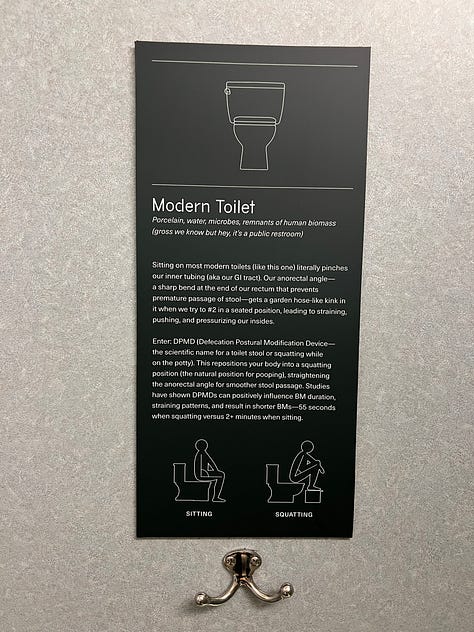
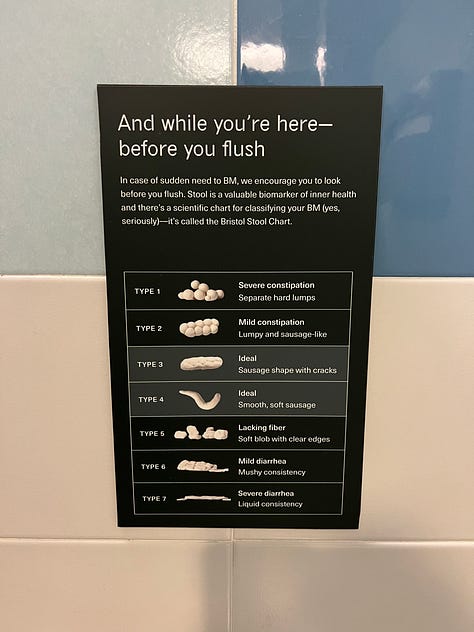





What a great conference! So many different topics that are interesting and really matter. Also… Reggie Watts?!?! Too cool. I’m really most curious about the discomfort tolerance talk. It feels to me like that’s one of the #1 issues that we have in our Western society as a whole- we are far too comfortable. And, the more humans get comfortable, the more risk-averse we get AND the more we will start to look at mundane annoyances as major issues.
Incredible recap!!! Loved this!